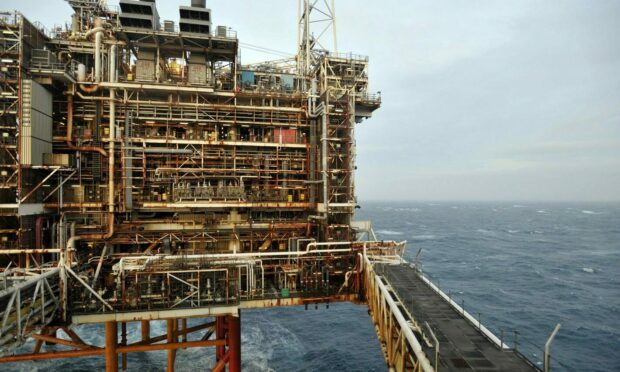Combined bills for households across the UK will surge beyond £100 billion when the new price cap takes effect in October, according to new research.
North Sea trade body Offshore Energies UK (OEUK) has published its 2022 economic report, setting out that energy prices account for half of UK inflation as the country is heading towards a recession.
The UK could be at risk of energy shortages this winter and the report warns that global prices could remain high for at least three years.
The UK relies on imports, which the OEUK said contributes to the surge in domestic annual bills rising from £1,300 to £3,500 in less than 12 months – with more price rises predicted in 2023.
The data compares gas and electricity bills to around £36bn across the country in 2021.
UK firms can’t control price of gas
With energy bills rising and uncertainty surrounding whether the UK will have the supply to meet the public’s demand.
Meanwhile, new Prime Minister Liz Truss said the UK would “ride out the storm” as she prepared a multibillion-pound package to help Britons cope with soaring energy costs.
In her first official speech she said she will “take action this week to deal with energy bills and to secure our future energy supply”.
It is thought her government will institute an energy freeze around the £2,500 mark, although nothing is finalised yet.
Sell for lower?
OEUK representatives were asked if their member companies would agree to sell gas at lower rates to utility firms and power generators in the UK.
The trade body representatives were spilt on the organisation’s stance on the matter.
On one hand, it was said that companies are in talks with the government and on the other, it was said that increasing supply was the only way to lower prices legally.
OEUK’s acting chief executive Mike Tholen said: “I know companies are talking individually with government at the minute, we have to be very careful as an industry to discuss price collectively with government as it is on the edge of being anti-competitive, something in which I don’t want to go to jail for and would not want any of my colleagues to either.”
While energy policy manager for OEUK, Will Webster, said: “We’ve got to not lose sight of the fact that at least 50% of the gas we use in the country is imported and that really complicates any idea that we can try and control the wholesale gas price.”
Natalie Coupar, OEUK’s communications director, confirmed the trade body’s stance on the matter, saying: “As a member body, we genuinely don’t stray into those type of commercial conversations because we genuinely would be straying into the breaking of competitor law.
“I think what members want to see us all doing though, is making the case for the UK to reduce its import dependency.”
Offshore wind expansion
The body has also called for a “rapid expansion of offshore wind”, as energy prices soar across the world.
Offshore Energies UK, which recently rebranded from Oil and Gas UK to include its wind power members, said that the country must “maximise” its energy independence and reduce its vulnerability to global price shocks.
To this end, it also called on the Government to issue the next round of oil and gas exploration licences for the North Sea as soon as possible.
More drilling does not mean lower bills
Climate campaigner Tessa Khan recently took to Twitter to criticise new prime minister Liz Truss’ promise of granting over 100 north sea licenses, explaining that the price of fuel is determined by an international market.
Khan wrote in a 13-part thread: “More domestic oil & gas production, whether in the North Sea or via fracking, will not affect the price we pay for it, which is determined by an international market. This has been accepted and acknowledged by both the UK Govt and industry.”
2/ More domestic oil & gas production, whether in the North Sea or via fracking, will not affect the price we pay for it, which is determined by an international market. This has been accepted and acknowledged by both the UK Govt and industry.
— Tessa Khan (@tessakhan) August 30, 2022
Greenpeace UK’s chief scientist Dr Doug Parr said on the subject: “Unleashing a North Sea drilling frenzy isn’t a plan to help bill payers but a gift to the fossil fuel giants already making billions from this crisis. New oil and gas could take a quarter of a century to pump out, will be eventually sold at global prices, and have no real impact on energy bills yet still fuel the climate crisis.”
Ross Dornan, OEUK’s market intelligence manager, insisted: “The best way for the UK to ensure secure gas and oil supplies is by increased investment in its own resources. Without that, the UK will be increasingly reliant on imports.”




Conversation